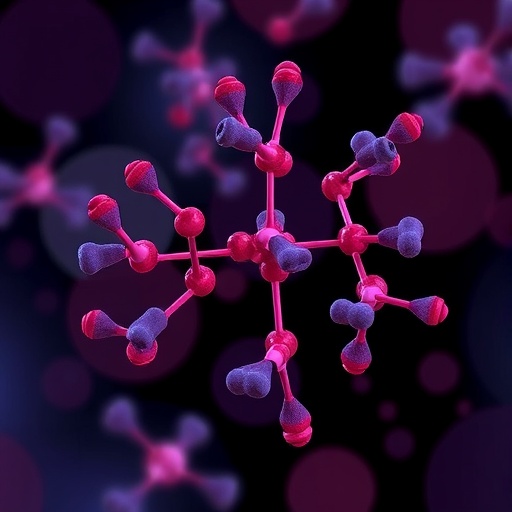In a groundbreaking study that pushes the frontier of mental health research, scientists have uncovered a striking link between serum alpha-1-acid glycoprotein (AGP) concentrations and depression among adult women in the United States. Published in the renowned journal BMC Psychiatry, the findings emerge from an analysis of the National Health and Nutrition Examination Survey (NHANES) data, collected between 2021 and 2023. This research sheds new light on the biochemical underpinnings of depressive disorders, emphasizing inflammation’s crucial role.
Depression remains a pervasive global health challenge, often resistant to conventional treatment and marked by complex biological pathways. Importantly, inflammation has been increasingly recognized as a key player in the onset and progression of mood disorders. AGP, an acute-phase protein predominantly produced by hepatocytes, functions as a sensitive biomarker for systemic inflammation. Yet, the relationship between AGP levels and depression has remained elusive, mired in controversy and inconsistency within prior research.
To explore this association with scientific rigour, researchers designed a cross-sectional study utilizing a nationally representative sample of U.S. adult women. The diagnostic tool employed was the Patient Health Questionnaire-9 (PHQ-9), a validated scale widely used to quantify depressive symptoms. A PHQ-9 score of 10 or higher was set as the threshold for clinically relevant depression, enabling the categorization of participants based on symptom severity.
The researchers applied advanced statistical methodologies, including weighted multivariate logistic regression to gauge the odds of depression across varying AGP concentrations. Weighted linear regression was used to analyze continuous PHQ-9 scores, while restricted cubic spline models probed the potential of non-linear dose-response relationships. These analytical approaches enabled heightened precision in uncovering nuanced associations within the population data.
Results from this expansive study revealed a robust and statistically significant positive correlation between serum AGP levels and depressive symptoms. Precisely, for every natural logarithm unit increase in AGP concentration, the odds of experiencing depression more than doubled (OR: 2.13), alongside an average increase of 1.47 points in PHQ-9 scale scores. These findings persist even after adjusting for multiple confounding variables, suggesting an intrinsic link between systemic inflammation and mood disorder severity.
Moreover, women in the highest quartile of AGP concentrations were found to have a 1.72-fold greater odds of meeting the clinical criteria for depression compared to those in the lowest quartile. This dose-dependent relationship underscores the potential of AGP serving not only as a biomarker for inflammation but also as an indicator of mental health vulnerability, especially among women.
What propels this study beyond previous inquiries is its comprehensive approach to subgroup and sensitivity analyses. Across varied demographic and health-related strata—encompassing age, ethnicity, socioeconomic status, and comorbid conditions—the positive association between AGP and depression remained consistent. This robustness bolsters confidence in the findings and opens avenues for personalized psychiatric risk assessment based on inflammatory biomarkers.
From a mechanistic perspective, these observations dovetail with existing theories that chronic inflammation contributes to neurobiological changes implicated in depression. Elevated AGP may reflect a heightened inflammatory milieu that affects neurotransmitter metabolism, neuroplasticity, and neural circuit functioning. Consequently, AGP could emerge as a valuable target for intervention, either in monitoring disease progression or in guiding anti-inflammatory therapeutic strategies.
The study’s cross-sectional design, while powerful, warrants caution in inferring causality. The temporality of the relationship between AGP and depression remains to be elucidated in prospective longitudinal studies. Future research efforts are poised to dissect whether elevated AGP levels precede depressive episodes or represent a downstream consequence of chronic mood dysregulation.
Clinically, these findings suggest that assessing AGP concentrations may enrich the diagnostic toolkit for depression, particularly for cases resistant to traditional psychoactive medications. Integrating inflammatory markers into psychiatric evaluation protocols promises a more holistic understanding of mental health disorders, bridging the gap between immunology and psychiatry.
In the broader context of public health, recognizing inflammation as a contributory factor in depression underscores the importance of lifestyle and environmental interventions. Diet, stress management, and physical activity—known modulators of inflammation—could play pivotal roles in mitigating depressive symptoms.
The implications of this study also resonate with the burgeoning field of psychoneuroimmunology, which explores the intersection of the nervous and immune systems. As biological psychiatry evolves, such biomarkers as AGP could inform precision medicine approaches, tailoring treatments to individual inflammatory profiles.
Ultimately, the revelation of AGP’s association with depression accentuates the need for interdisciplinary collaboration. Integrating expertise from hepatology, immunology, and psychiatry could unravel the complex biochemical pathways influencing mental health and pave the way for innovative diagnostic and therapeutic modalities.
As the mental health crisis continues to escalate worldwide, findings like these equip the medical community with vital insights to refine approaches to diagnosis, treatment, and prevention. Future investigations will determine how this knowledge can translate into improved patient outcomes, marking a hopeful stride in unraveling the biological substrates of depression.
Subject of Research: Association between serum alpha-1-acid glycoprotein concentrations and depression in U.S. adult women.
Article Title: Association between the serum alpha-1-acid glycoprotein concentrations and depression in US adult women: a cross-sectional study.
Article References:
Zhong, Y., Fang, C., Yao, T. et al. Association between the serum alpha-1-acid glycoprotein concentrations and depression in US adult women: a cross-sectional study. BMC Psychiatry 25, 489 (2025). https://doi.org/10.1186/s12888-025-06934-w
Image Credits: AI Generated




